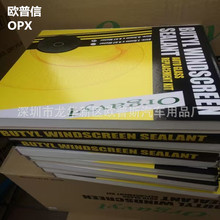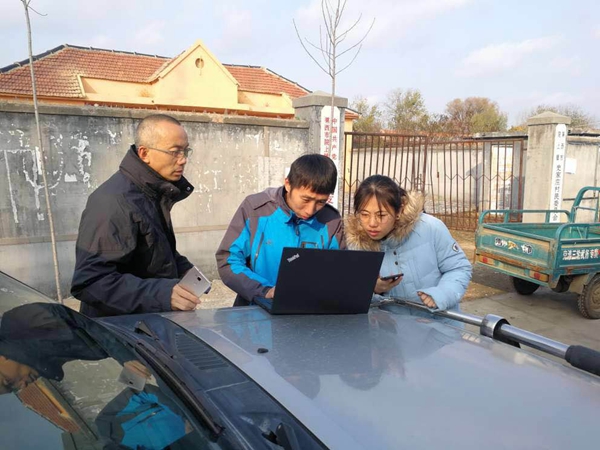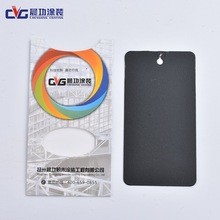Cheap sodium
An international team of scientists eyeing next-generation energy storage solutions have demonstrated an eco-friendly and low-cost battery with some exciting potential. The group’s novel sodium-sulfur battery design offers a fourfold increase on energy capacity compared to a typical lithium-ion battery, and shapes as a promising technology for future grid-scale energy storage.
The team’s creation falls into a category of batteries known as molten-salt batteries, which have been around in various forms for around 50 years. As the emphasis on renewable energy continues to grow, scientists are bullish on the potential of molten-salt batteries to store it, owing to their relative affordability and reliance on commonly available materials.
This could, theoretically, see them built on the larger scales needed to store vast amounts of renewable energy. Typical versions of these rely on a sodium-sulfur chemistry and hold their electrodes at high temperatures to keep the electrolyte in a liquid molten state. Scientists in China and Australia have teamed up to develop their own version, which they say offers greatly improved performance at room temperature instead.
“When the sun isn’t shining and the breeze isn’t blowing, we need high-quality storage solutions that don’t cost the Earth and are easily accessible on a local or regional level,” said lead researcher Dr Shenlong Zhao from the University of Sydney. “We hope that by providing a technology that reduces costs we can sooner reach a clean energy horizon."
Zhao and his colleagues set out to address a couple of shortcomings with current sodium-sulfur batteries, relating to their short life cycles and limited capacities, which has hindered their practicality in commercial applications. The team’s design makes use of carbon-based electrodes and a thermal degradation process known as pyrolysis to alter the reactions between the sulfur and sodium.
The result is a sodium-sulfur battery with a high capacity of 1,017 mAh g−1 at room temperature, which the team notes is around four times that of a lithium-ion battery. Importantly, the battery demonstrated good stability and retained around half of this capacity after 1,000 cycles, described in the team’s paper as “unprecedented.”
“Our sodium battery has the potential to dramatically reduce costs while providing four times as much storage capacity,” said Dr Zhao. “This is a significant breakthrough for renewable energy development which, although reduces costs in the long term, has had several financial barriers to entry.”
Having demonstrated the technology in coin cell batteries in laboratory testing, the researchers are now working on pouch cell versions as they eye a path to commercial use.
“It probably goes without saying but the faster we can decarbonize – the better chances we have of capping warming,” said Zhao. “Storage solutions that are manufactured using plentiful resources like sodium – which can be processed from sea water – also have the potential to guarantee greater energy security more broadly and allow more countries to join the shift towards decarbonization.”
The research was published in the journal Advanced Materials.
Source: University of Sydney
(责任编辑:新闻中心)
-
Amazon Android Days sale 2024: Save on unlocked phones, tablets, and more
 Table of ContentsTable of ContentsUPDATE: Aug. 28, 2024, 1:50 p.m. EDT This story has been updated w
...[详细]
Table of ContentsTable of ContentsUPDATE: Aug. 28, 2024, 1:50 p.m. EDT This story has been updated w
...[详细]
-
 持续了9天!广西供销大集在大新举办|粤桂协作_南方+_南方plus红岩大地花竞放,木叶传情迎宾来。10月13日—22日,2023年广西供销大集活动暨“庆丰收·促和美”农民丰收节活动在大新县金桂·德天印
...[详细]
持续了9天!广西供销大集在大新举办|粤桂协作_南方+_南方plus红岩大地花竞放,木叶传情迎宾来。10月13日—22日,2023年广西供销大集活动暨“庆丰收·促和美”农民丰收节活动在大新县金桂·德天印
...[详细]
-
 本报讯“法官,我们昨天晚上发现有一笔款打错账户了,打电话给打错账户的当事人李某,他说卡不在身边,不知道这件事。我们希望法院帮我们追回。”5月18日上午11时,雨城区某公司工作人员在诉讼代理人的陪同下来
...[详细]
本报讯“法官,我们昨天晚上发现有一笔款打错账户了,打电话给打错账户的当事人李某,他说卡不在身边,不知道这件事。我们希望法院帮我们追回。”5月18日上午11时,雨城区某公司工作人员在诉讼代理人的陪同下来
...[详细]
-
鎷涘晢閾惰闈掑矝棣欐腐瑗胯矾鏀寮€灞曢槻鑼冨拰鎵撳嚮闈炴硶闆嗚祫銆侀潪娉曟斁璐枫€侀噾铻嶈瘓楠楁椿鍔╛涓浗灞变笢缃慱闈掑矝
 銆€銆€杩戞湡锛屼腑鍥介摱淇濈洃浼氫笅鍙戜簡銆婁腑鍥介摱淇濈洃浼氬姙鍏巺鍏充簬閾惰涓氫繚闄╀笟闃茶寖鍜屾墦鍑婚潪娉曢泦璧勩€侀潪娉曟斁璐枫€侀噾铻嶈瘓楠楁湁鍏冲伐浣滅殑閫氱煡銆?浠ヤ笅绠€绉般€婇
...[详细]
銆€銆€杩戞湡锛屼腑鍥介摱淇濈洃浼氫笅鍙戜簡銆婁腑鍥介摱淇濈洃浼氬姙鍏巺鍏充簬閾惰涓氫繚闄╀笟闃茶寖鍜屾墦鍑婚潪娉曢泦璧勩€侀潪娉曟斁璐枫€侀噾铻嶈瘓楠楁湁鍏冲伐浣滅殑閫氱煡銆?浠ヤ笅绠€绉般€婇
...[详细]
-
 ListentoarticlePresident Asif Ali Zardari has conferred the prestigious Hilal-e-Imtiaz on Olympic go
...[详细]
ListentoarticlePresident Asif Ali Zardari has conferred the prestigious Hilal-e-Imtiaz on Olympic go
...[详细]
-
 本报讯近日,记者从市发展和改革委员会获悉,为全面落实《优化营商环境条例》,全面提升“获得电力”服务水平,持续改善用电营商环境,结合我市实际,近日,市发展和改革委员会会同市经信局、市政务服务和大数据局等
...[详细]
本报讯近日,记者从市发展和改革委员会获悉,为全面落实《优化营商环境条例》,全面提升“获得电力”服务水平,持续改善用电营商环境,结合我市实际,近日,市发展和改革委员会会同市经信局、市政务服务和大数据局等
...[详细]
-
 本报讯7月1日,对于芦山县飞仙关镇飞仙村来说,可谓喜事连连——获得雅安市2020年度发展村级集体经济6万元奖励。“真的没有想到,村级集体经济发展起来了,还得到市财政奖励,我们的干劲更足了!”7月6日,
...[详细]
本报讯7月1日,对于芦山县飞仙关镇飞仙村来说,可谓喜事连连——获得雅安市2020年度发展村级集体经济6万元奖励。“真的没有想到,村级集体经济发展起来了,还得到市财政奖励,我们的干劲更足了!”7月6日,
...[详细]
-
开门红!元旦假期青岛待客136.31万人次 收入19.22亿
 记者从青岛市旅游发展委获悉,元旦假日旅游市场繁荣有序,区市周边休闲游、乡村采摘游、温泉滑雪游等冬季特色旅游产品持续火爆,呈现出多点开花、各具特色的全域旅游发展格局,2018年12月30日至2019年1
...[详细]
记者从青岛市旅游发展委获悉,元旦假日旅游市场繁荣有序,区市周边休闲游、乡村采摘游、温泉滑雪游等冬季特色旅游产品持续火爆,呈现出多点开花、各具特色的全域旅游发展格局,2018年12月30日至2019年1
...[详细]
-
How to Backup Your Gmail Account
 There are a number of reasons why you might need to backup your email account. You might be changing
...[详细]
There are a number of reasons why you might need to backup your email account. You might be changing
...[详细]
-
闈掑矝鑱旈€氬紑灞曡鏀挎潙缃戠粶涓撻」浼樺寲 鎻愬崌缃戠粶鍝佽川
 銆€銆€浠婂勾鍐锛岄潚宀涜仈閫氱綉缁滀紭鍖栦腑蹇冧互鍏氬缓涓虹粺棰嗭紝绉夋寔“涓変釜涓€鍒?rdquo;(涓€鍒囦负浜嗗鎴枫€佷竴鍒囦负浜嗗競鍦恒€佷竴鍒囦负浜嗕竴绾?鐨勬寚瀵兼€濇
...[详细]
銆€銆€浠婂勾鍐锛岄潚宀涜仈閫氱綉缁滀紭鍖栦腑蹇冧互鍏氬缓涓虹粺棰嗭紝绉夋寔“涓変釜涓€鍒?rdquo;(涓€鍒囦负浜嗗鎴枫€佷竴鍒囦负浜嗗競鍦恒€佷竴鍒囦负浜嗕竴绾?鐨勬寚瀵兼€濇
...[详细]

 Supercritical geothermal power: Limitless promise or impossible dream?
Supercritical geothermal power: Limitless promise or impossible dream? 市税务局重大案件工作运行机制四号专案侦破纪实
市税务局重大案件工作运行机制四号专案侦破纪实 璐㈢粡瑙傚療锛氫汉姘戝竵鍗囧€兼湁浣曟剰娑礯涓浗灞变笢缃慱闈掑矝
璐㈢粡瑙傚療锛氫汉姘戝竵鍗囧€兼湁浣曟剰娑礯涓浗灞变笢缃慱闈掑矝 市税务局重大案件工作运行机制四号专案侦破纪实
市税务局重大案件工作运行机制四号专案侦破纪实 Blinken condemns Russia
Blinken condemns Russia
